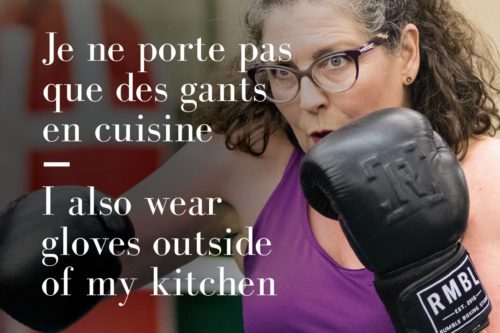 Alberta has one of the fastest growing French-speaking populations in Canada, with over 270,000 citizens who can speak the language and over 80,000 francophones and francophiles residing within its borders. To ensure these people are healthy, the Fédération du sport francophone de l’Alberta has launched a number of campaigns to encourage physical literacy and regular exercise.
Alberta has one of the fastest growing French-speaking populations in Canada, with over 270,000 citizens who can speak the language and over 80,000 francophones and francophiles residing within its borders. To ensure these people are healthy, the Fédération du sport francophone de l’Alberta has launched a number of campaigns to encourage physical literacy and regular exercise.
“We’re really trying to emphasize the importance of movement, and of being active for all ages. We’re not a federation for one sport — we want to reach everyone from newborns to elders,” said Pauline Kamugisha, events coordinator for the federation.
“Our idea is pleasure before everything, so it’s really important for people to get involved and have fun so that something positive is coming from it, not just competition. And we are always looking for ways to innovate, include everyone, and emphasize respect.”
The organization initially grew from an annual sport competition for high school students called the Alberta Francophone Games. Starting with 150 participants in 1993, it has now grown to host over 600 students per event. Open to any francophone or francophile, whether they’re in a full-immersion class or not, the games offer a number of different activities such as biking, basketball, soccer, volleyball, music and visual art.
But that’s just where the fun begins. The federation also has created a dance video challenge for students that over 50 schools participated in, as well as regular fundraising events that include activities like walking, bowling and curling. One particular five-year project saw them implementing healthy eating programs into the schools directly.
“People are often surprised by how many things we do, with every age of participant,” said Kamugisha.
At the 2021 Virtual Sport for Life Canadian Summit this year, the federation shared information about #ElleBouge / #SheMoves, a bilingual campaign they’re running to get females active and involved in physical activity, primarily in Edmonton. Having recognized the importance of women being active, which impacts the whole family, the idea stemmed from a similar campaign put on by Sport England.
“We reached out to 24 francophone women from different origins, of different ages and sizes, and we interviewed them and took their photos. We published these pictures on buses and mobile panels and had an exhibition. This project is still ongoing,” she said.
According to research, the francophone community is continuing to grow. That’s why Kamugisha and her team are preparing for more campaigns like this in the future. Their presentation at the Summit was well-received, and important connections were made with physical literacy allies. Sport for Life’s Senior Coordinator of Bilingual Services Kim Samson was one of them.
“Many people don’t realize how vibrant and dynamic the Francophone community is in Alberta. We were thrilled to host the Fédération du sport francophone de l’Alberta at our Summit as they raised awareness about the ground-breaking work they’re doing, and the need to do even more,” said Samson.
“The work they’re doing is bound to have a lasting impact on the province.”
